/regions/world
World
LEAD journal special issue on climate change
Posted on 07 Jun, 2010 08:33 AM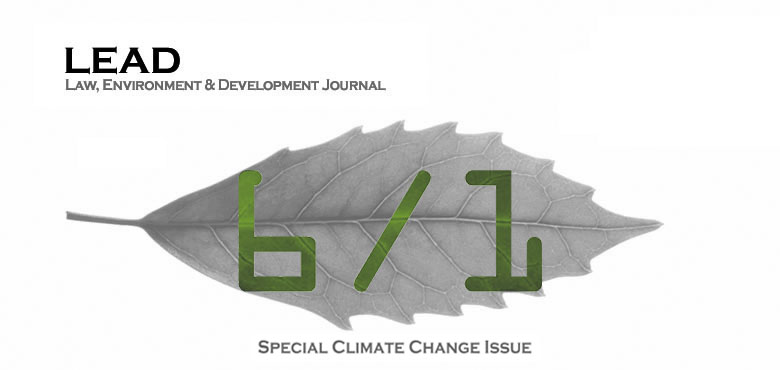 The Law, Environment and Development Journal published by School of Oriental and African Studies and International Environmental Law Research Centre, has brought out a special issue on Climate Change.
The Law, Environment and Development Journal published by School of Oriental and African Studies and International Environmental Law Research Centre, has brought out a special issue on Climate Change.
Rainwater Harvesting Conference, Sear Net, Ethiopia
Posted on 01 Jun, 2010 10:42 AM13th SearNet International Conference
Theme:"Rainwater Harvesting as a Means of Adaptation to the Challenges of Climate Change”
Organizers: Southern and Eastern Africa Rainwater Network (SearNet), Ethiopia Rainwater Harvesting Association (ERHA), Rainwater Harvesting Implementation Network (RAIN)
Venue: Taddesse Enjori Hotel in Awassa, Ethiopia.
Holistic Engineering and Hydro-Diplomacy in the Ganges-Brahmaputra-Meghna Basin - EPW Paper
Posted on 23 May, 2010 04:49 PM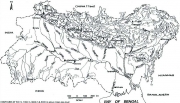 This document by Jayanta Bandyopadhyay, highlights the importance of the Ganges-Brahmaputra-Meghna (GBM) basin as an important source of water for many of the countries in South Asia, and the crucial role of negotiations in the context of the impending water crisis threatening the basin with the phenomenon of climate change.
This document by Jayanta Bandyopadhyay, highlights the importance of the Ganges-Brahmaputra-Meghna (GBM) basin as an important source of water for many of the countries in South Asia, and the crucial role of negotiations in the context of the impending water crisis threatening the basin with the phenomenon of climate change.
The document argues that traditional water engineering has been found to be highly reductionistic and ineffective in bringing about development in the GBM basin and the continuing poverty in the GBM basin can be linked to the absence of a holistic ecological perspective, use of an incomplete framework for economics and ignoring of long-run economic costs of the actions proposed.
15th International Conference on "Rainwater Catchment Systems" - Taiwan Rainwater Catchment Systems Association, 28th march - 4th April, 2011, at Taipei and Tainan
Posted on 13 May, 2010 03:42 PM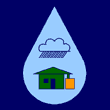
"Worldwide Multi-objective Rainwater Harvesting and Utilization"
Organizers:
- Taiwan Rainwater Catchment Systems Association
- International Rainwater Catchment Systems Association
- Chinese Culture University
- National Taiwan Ocean University
- National Cheng Kung University
Venue:
There will be 2 separate venues:
- Northern part of Taiwan (Chinese Culture University, Taipei), March 28-29, 2011
- Southern part of Taiwan (National Cheng Kung University, ), April 1, 2011
Topics:
- Surface / groundwater water supplies
- Domestic / agricultural / industrial / commercial usages
Mukuteswara Gopalkrishnan to receive American Academy of Water Resources Engineers highest honor
Posted on 11 May, 2010 05:51 PMArticle and Picture Courtesy: American Academy of Water Resources Engineers

John J. Cassidy, Ph.D., P.E., Dist.M.ASCE, NAE, Hon.D.WRE, of Walnut Creek, California, and Mukuteswara Gopalakrishnan Hon.D.WRE, of New Delhi, India and the Secretary General of International Commission on Irrigation and Drainage (ICID) were recently elected the nineteenth and twentieth Honorary Diplomates of the American Academy of Water Resources Engineers. The Honorary Diplomate status is AAWRE's highest honor given to an individual. Since the founding of AAWRE in October 2004, twenty individuals have received the Honorary Diplomate, Water Resources Engineers (Hon.D.WRE) status from the Academy.
Honorary Diplomate status is only granted to outstanding individuals who meet one or more of the following criteria: has attained a position of eminence in the water resources engineering profession, has made a singular noteworthy achievement or sustained noteworthy contributions to the advancement of the water resources engineering profession, or has rendered outstanding service over a sustained period of time in the field of water resources and to the work of the Academy.
Agriculture Rainwater Harvesting - Newsletter from International Rainwater Harvesting Alliance (IRHA)
Posted on 11 May, 2010 04:50 PMInternational Rainwater Harvesting Alliance (IRHA) was created in Geneva in November 2002 following recomendations formulated during the World Summit for Sustainable Development in Johannesburg two months earlier. The mandate called for federation and unification of the disparate rainwater harvesting (RWH) movement around the world, to promote rainwater as a valuable water resource and to build on achievements in this field for the fulfilment of the Millennium Development Goals.
In partnership with the most eminent organisations and individuals in the field, the IRHA provides a lobbying and advocacy platform for RWH. It supports the growth of RWH solutions to water supply problems. It also provides a forum for its members to work together or share experiences, and thus for the benefit of people living with water scarcity.
Topic of this issue: Agricultural Rainwater Harvesting
Ramsar Small Grants Fund
Posted on 10 May, 2010 10:41 AM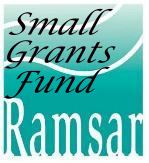 Article Courtesy: Funds for NGOs.org
Article Courtesy: Funds for NGOs.org
“The Ramsar Small Grants Fund (SGF) was established in 1990 as a mechanism to assist developing countries and those with economies in transition in implementing the Convention and to support the conservation and wise use of wetland resources, with a strong human and social dimension. From 1991 to 2008 the Fund has provided a total of 7.5 million Swiss Francs to 227 projects from 108 countries, providing up to 40,000 Swiss francs (about US$32,000) per project.”
2010 UN-Water Global Annual Assessment of Sanitation and Drinking-Water (GLAAS)
Posted on 27 Apr, 2010 01:18 PM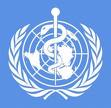
The Global Annual Assessment of Sanitation and Drinking-Water (GLAAS) is a UN-Water initiative implemented by the World Health Organization (WHO). The objective of UN-Water GLAAS is to provide policy makers at all levels with a reliable, easily accessible, comprehensive and global analysis of the evidence to make informed decisions in sanitation and drinking-water.
With over 2.6 billion people living without access to improved sanitation facilities, and nearly 900 million people not receiving their drinking-water from improved water sources, UN-Water GLAAS highlights where efforts stagnate in achieving the Millennium Development Goal Target 7.C.¬ to halve, by 2015, the proportion of people without sustainable access to safe drinking-water and basic sanitation. It also highlights the post-2015 challenges that need to be addressed by the United Nations system to collectively support its Member States.
South Asia Rivers should be source of uniting people, not dividing them
Posted on 23 Apr, 2010 03:27 PMGuest Post by Himanshu Thakkar
New Delhi: A workshop organised yesterday on the sidelines of a South Asia civil society gathering under the banner of Assembly of a Union of South Asian Peoples at Jawaharlal Nehru University came up with a set of recommendations to address the question of conflict over shared rivers in the region. The key message from the meeting, which addressed issues pertaining to Pakistan, Bangladesh, Sri Lanka, Bhutan, Nepal and India, was that South Asia’s rivers should be a source of uniting peoples, not dividing them. The Assembly is being organised as a civil society counter to the official SAARC meeting to be held in Thimpu from 28-29 April 2010.
Local catchment management in cities - A guidebook by UN-HABITAT
Posted on 19 Apr, 2010 05:02 PM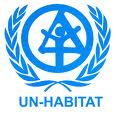 This guidebook by UN-HABITAT, provides an overview of the principles and practices required for sustainable urban water catchment management. It deals with the principles and practices for better management of water resources which, in turn, will lead to general improvement in the health of the local population, food security, environmental protection and sustainable development. It states that it is necessary to develop enduring partnerships among the participating institutions and organizations in the catchment area.
This guidebook by UN-HABITAT, provides an overview of the principles and practices required for sustainable urban water catchment management. It deals with the principles and practices for better management of water resources which, in turn, will lead to general improvement in the health of the local population, food security, environmental protection and sustainable development. It states that it is necessary to develop enduring partnerships among the participating institutions and organizations in the catchment area.
Along side, policies, laws and regulations should be geared to provide an enabling framework as needed for formulation and implementation of action plans at the local level. The guidebook also comprises case studies from Australia, India, Latin America and South Africa to showcase the prospects of local action for water resources management.
